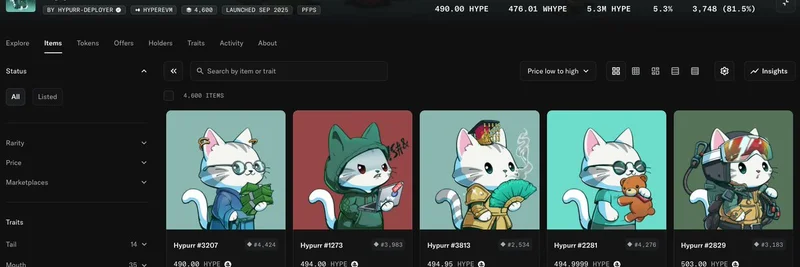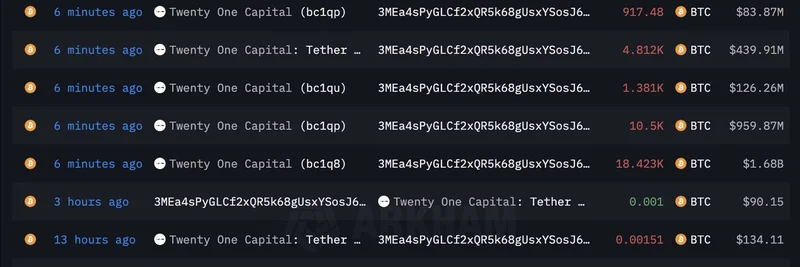In the fast-evolving world of tech, open source isn't just a feel-good philosophy anymore—it's a killer business strategy, especially if you're playing catch-up. That's the vibe from a recent tweet by Haseeb Awan, managing partner at Dragonfly Capital, who spotlighted how China is flipping the script in robotics and AI.
Haseeb kicked things off by saying: "This is interesting. I once thought of open source as a computing philosophy, but maybe that's an outdated view. China has increasingly realized that it's just a better business strategy as a technological challenger."
He points to examples like DeepSeek and Qwen, which are powerful open-source AI models from China that are giving Western closed systems a run for their money. But the real gem in his thread is the shoutout to Unitree Robotics, a Chinese company that's become the go-to for quadruped robots—those four-legged machines that can walk, jump, and navigate like a mechanical dog.
According to Haseeb, Unitree holds about 70% of the global market share in quadrupeds. Why? Because their robots are affordable, and they offer open SDKs (that's software development kits, basically toolboxes for programmers to customize the robot's behavior). This openness makes it super easy for researchers and developers to tinker and innovate without jumping through hoops.
Compare that to Boston Dynamics, the U.S. heavyweight famous for viral videos of their Spot robot doing backflips. To get deep-level control on their bots, you often need to shell out for an annual fee. It's more closed-off, which can slow down widespread adoption, especially in cash-strapped academic labs.
Why Open Source Wins for Challengers
Haseeb's take ties into a bigger picture from Packy McCormick's newsletter Not Boring, which dives into China's dominance in the "Electric Stack"—think batteries, motors, and electronics that power everything from EVs to drones and robots. China isn't just copying; they're scaling smartly, using open approaches to build ecosystems that feed back into their products.
In robotics, Unitree's strategy shines in research circles. Their Go2 model, for instance, is a favorite because it's cheaper than competitors like ANYmal or Spot, yet robust enough for experiments that might involve a few crashes. Labs prefer it for testing risky control policies without fearing huge repair bills. As top universities build custom software for Unitree bots, it creates a virtuous cycle: better tools lead to more adoption, driving down costs further.
This mirrors what's happening in AI with models like DeepSeek (a coding-focused LLM) and Qwen (from Alibaba, great for multilingual tasks). By open-sourcing them, China encourages global devs to improve and integrate, while keeping hardware advantages in-house.
Parallels to Blockchain and Meme Tokens
As someone who's covered crypto at CoinDesk and now digs into meme tokens here at Meme Insider, I see echoes in the blockchain space. Open source is the backbone of crypto—think Ethereum's code, freely forkable, sparking innovations like Solana or countless meme coins.
Meme tokens thrive on this openness too. Projects like Dogecoin started as jokes but exploded because anyone could build on them, create communities, or even fork new variants. It's similar to Unitree's SDK: lower barriers mean more experimentation, faster growth, and market dominance if you nail the basics.
But there's a flip side—open source can lead to copies and competition. Just like how Western tech often gets "absorbed" in China (a polite way to say reverse-engineered and improved), meme token devs fork successful contracts, sometimes leading to rugs or dilution. Still, the winners? Those who build strong communities and iterate quickly, much like Unitree pummeling costs through research feedback.
What's Next for Robotics in Crypto?
Looking ahead, this China-led open source push in robotics could intersect with blockchain in wild ways. Imagine decentralized AI controlling swarms of Unitree bots for real-world tasks, tokenized via meme coins. Or NFT-gated access to custom robot SDKs. It's early, but as tech challengers like China show, openness isn't charity—it's strategy.
Haseeb's thread sparked replies agreeing on open source as "soft power" and linking to deeper reads like the Electric Slide piece. One user noted Unitree's supply chain control keeps prices low, echoing China's broader playbook in EVs and solar.
If you're in blockchain, keep an eye on these hardware trends. They could inspire the next wave of meme token narratives—robot dogs pumping your portfolio? Stranger things have happened in crypto.
For more on how tech strategies shape meme ecosystems, stick around Meme Insider. We've got the alpha on tokens that move as fast as a Unitree bot.




